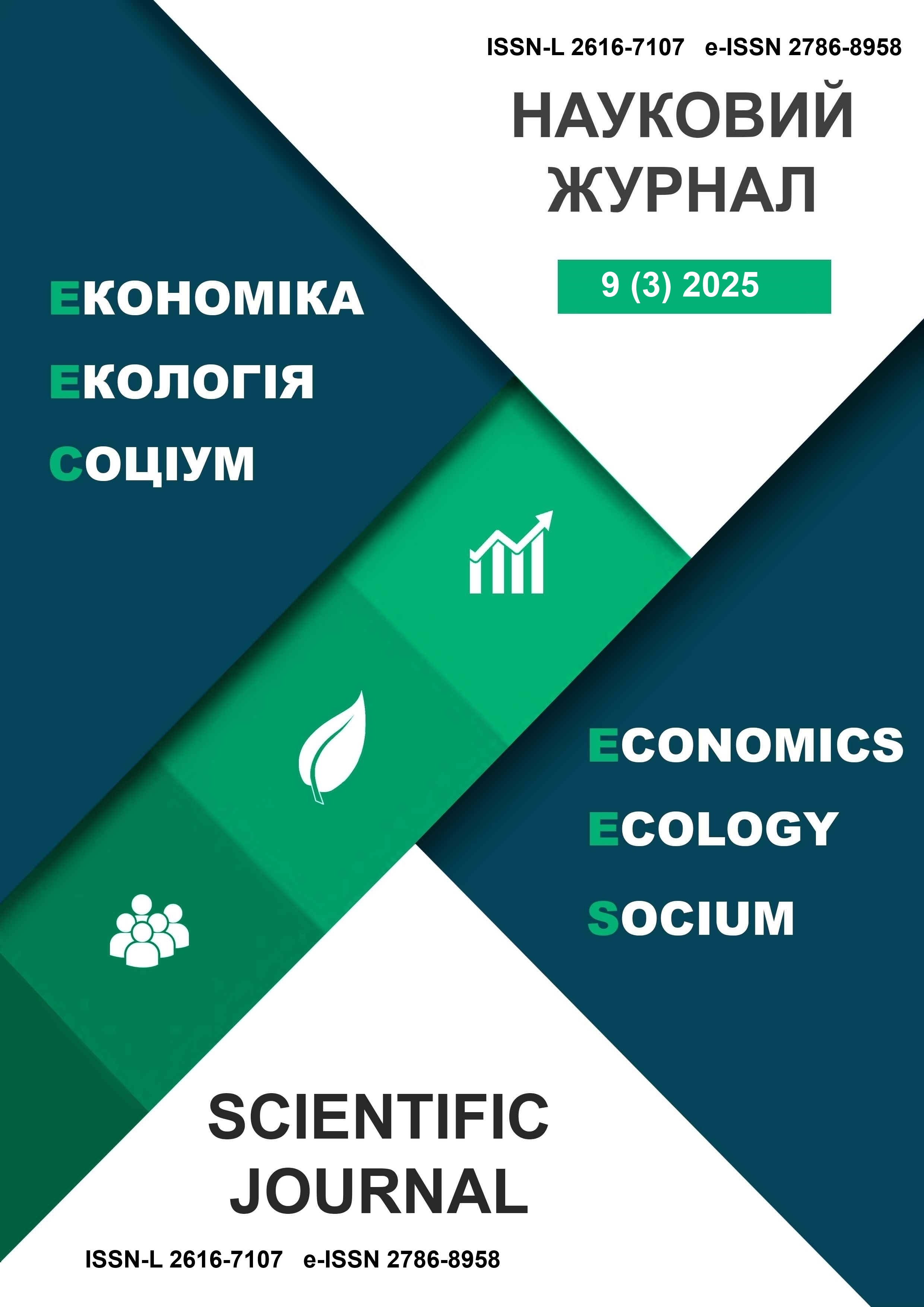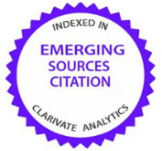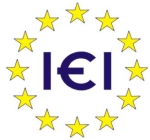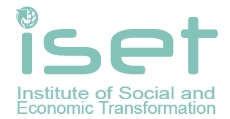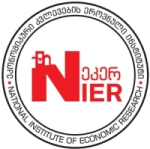Management of Plastic Waste Processing and Recycling in Water Pollution Reduction
Abstract
Introduction. Plastic decomposition is an exceptionally protracted process, requiring urgent measures to reduce environmental pollution, including that of water resources. Current solutions include increasing measures to sort and recycle plastic waste and developing biodegradable and environmentally friendly substitutes. Although plastic is recyclable, not all types are easily recycled. Therefore, most significant efforts are needed to find sustainable solutions. This highlights the importance of analysing the current situation regarding plastic waste and developing specific measures to reduce pollution.
Aim and tasks. This study aims to analyse the concern of increasing plastic waste in Bulgaria and to develop strategies for its reduction. In particular, measures to reduce the consumption of plastic products, introduce separate waste collection, and recycle and reuse valuable raw materials are considered, emphasising the contribution of these actions to reducing water resource pollution.
Results. This study analysed two main pollution control areas: limiting plastic use and introducing rapidly degradable materials. These approaches do not exclude but complement each other. This study confirms that using biodegradable polymers such as PLA, PHA, and PBS has significant environmental benefits despite their cost and the disadvantages of production technologies. Effective solutions to pollution problems have been shown to require legislative measures and innovations, raising public awareness, and developing a culture of separate waste collection. The research and analysis revealed ways to reduce the pollution of water bodies with plastic and polyethene waste. The effects of this waste on the development of humanity have been examined, and options for solving these problems on a global scale have been proposed.
Conclusions. Plastic products and packaging have a significant negative impact on the environment, including reducing pollution of water and marine ecosystems. It is necessary to improve the efficiency of plastic waste management and recycling. Analysis of these data on the pollution of water bodies and adjacent territories showed the need to develop a system for monitoring and collecting information on pollution, including in hard-to-reach areas. To reduce this impact, it is important to combine limiting plastic consumption and using rapidly degradable bioplastics with the active implementation of recycling and reuse programs.
Keywords:
Plastic Waste, Water Bodies, Environment, Pollution, Conservation, Recycling.References
Brand Media Bulgaria. (2025). Plastic in the ocean can be detected from space. Economic.bg. https://www.economic.bg/bg/a/view/plastmasata-v-okena-mozhe-bade-otkrita-ot-kosmosa-116833
Dolchinkov, N. (2024). Construction of a system for monitoring the pollution of water bodies with waste. In Environment. Technology. Resources: Proceedings of the 15th International Scientific and Practical Conference (Vol. I, pp. 136–141). Rezekne, Latvia. https://doi.org/10.17770/etr2024vol1.7989
Dolchinkov, N. (2025). Building a system for monitoring and controlling pollution of water bodies. ETR, 1, 171–177. https://doi.org/10.17770/etr2025vol1.8693
European Commission. (2012). Proposal for a Council Directive amending Annex I to European Parliament and Council Directive 94/62/EC on packaging and packaging waste (COM/2012/0141 final/2 – 2012/0070 (NLE)). EUR-Lex. https://eur-lex.europa.eu/legal-content/EN/TXT/?uri=CELEX%3A52012PC0141
European Parliament and Council. (2019). Directive (EU) 2019/904 of 5 June 2019 on the reduction of the impact of certain plastic products on the environment (Text with EEA relevance). Official Journal of the European Union, L 155, 1–19. https://data.europa.eu/eli/dir/2019/904/oj
Eurostat. (2024). Packaging waste statistics https://ec.europa.eu/eurostat/statistics-explained/index.php?title=Packaging_waste_statistics
Ilieva, R., Anguelov, K., & Nikolov, Y. (2019). Mathematical algorithms for artificial intelligence. In Proceedings of the 45th International Conference on Application of Mathematics in Engineering and Economics (AMEE'19) (Vol. 2172). https://doi.org/10.1063/1.5133618
Koynakov, K. (2021). Logistical reconnaissance using unmanned aerial vehicles (UAVs). In Proceedings of the scientific conference "Logistics and social systems" (pp. 75–83). Veliko Tarnovo: Vasil Levski National Military University.
Koynakov, K. (2025). Research of the energy status of military personnel during complex tactical exercises. In Environment. Technology. Resources: Proceedings of the 16th International Scientific and Practical Conference (Vol. V, pp. 135–139). https://doi.org/10.17770/etr2025vol5.8508
Lazarov, L. (2018). General terms and conditions for the radio connection jamming. In National Conference on High Technology for Sustainable Development HiTech 2018 (pp. 131–133). https://doi.org/10.1109/HiTech.2018.8566645
Marinov, R. (2024). Model of management of processes and phenomena in the military security system. ETR, 4, 173–177. https://doi.org/10.17770/etr2024vol4.8188
Marinov, R., Stoykov, S., & Marinov, P. (2019). Urbanized territories: Non-existing part of crisis response operations. In International Conference on Creative Business for Smart and Sustainable Growth (CreBUS 2019). IEEE. https://doi.org/10.1109/CreBUS.2019.8840084
Minevski, I. (2018). Risk in the transportation of dangerous goods by land transport. Publishing House of the National University of Transport.
Morales-Caselles, C., Viejo, J., Martí, E., González-Fernández, D., Pragnell-Raasch, H., González-Gordillo, J. I., Montero, E., Arroyo, G. M., Hanke, G., Salvo, V. S., Basurko, O. C., Mallos, N., Lebreton, L., Echevarría, F., van Emmerik, T., Duarte, C. M., Gálvez, J. A., van Sebille, E., Galgani, F., … Cózar, A. (2021). An inshore–offshore sorting system revealed from global classification of ocean litter. Nature Sustainability, 4(6), 484–493. https://doi.org/10.1038/s41893-021-00720-8
Nedev, N. (2024). Specificity of international humanitarian law in the conditions of modern armed conflicts. In Scientific Conference "Knowledge, Science, Innovations, Technologies" (pp. 1455–1468). Veliko Tarnovo.
Nichev, N., & Koynakov, K. (2025). A model for using drones for medical reconnaissance in combat operations. In Environment. Technology. Resources: Proceedings of the 16th International Scientific and Practical Conference (Vol. V, pp. 209–212). https://doi.org/10.17770/etr2025vol5.8509
Nikolov, N. (2020). Determining the toxicity class of industrial waste. In Collection of reports from the Annual University Scientific Conference (Vol. 5, pp. 177–181). Vasil Levski National University.
Padarev, N. I. (2024). Application of software platforms to enhance early warning and detection system capabilities for nuclear weapons threat. In Environment. Technology. Resources: Proceedings of the 15th International Scientific and Practical Conference (Vol. IV, pp. 194–198). https://doi.org/10.17770/etr2024vol4.8202
Pavlov, M. (2019). The radiation consequences of accidents at nuclear power plants and the use of nuclear weapons. In Scientific Conference "Radiation Safety in the Modern World" (pp. 84–91). NSU "V. Levski".
Petlyankov, P. (2024a). Construction of the earthen surface. In Proceedings of the Annual University Scientific Conference of the National Military University "Vasil Levski" (Vol. 4, pp. 45–51).
Petlyankov, P. (2024b). Design of the road in plan. In Proceedings of the Annual University Scientific Conference of the National Military University "Vasil Levski" (Vol. 4, pp. 59–64).
Platace, R., Poisa, L., & Adamovics, A. (2012). Reed canary grass (Phalaris arundinacea L.) productivity and quality depending on agro-meteorological conditions. In 11th International Scientific Conference "Engineering for Rural Development" (pp. 195–198). Jelgava, Latvia.
Poisa, L., & Adamovics, A. (2012). Ash melting behaviour in oxidizing atmosphere in energy crops. In 11th International Scientific Conference "Engineering for Rural Development" (pp. 506–510). Jelgava, Latvia.
Poiša, L., Adamovičs, A., Antipova, L., Šiaudinis, G., Karčauskienė, D., Platače, R., Žukauskaitė, A., Malakauskaitė, S., & Teirumnieka, Ē. (2015). The chemical content of different energy crops. In Environment. Technology. Resources: Proceedings of the 8th International Scientific and Practical Conference (Vol. 1, pp. 191–196). https://doi.org/10.17770/etr2011vol1.913
Popov, G., Anguelov, K., & Popova, A. (2021). Efficiency of the management of parallel activities in the business enterprise. In 46th International Conference on Applications of Mathematics in Engineering and Economics (AMEE20) (Vol. 2333). https://doi.org/10.1063/1.5133618
Simeonov, M., & Marinov, M. (2024). Determine the location of nodes in wireless sensor network by using genetic algorithm. In Environment. Technology. Resources: Proceedings of the 15th International Scientific and Practical Conference (Vol. 2). https://doi.org/10.17770/etr2024vol2.8059
Stanchev, G. (2024). Technical obstacles to speech intelligibility. In Environment. Technology. Resources: Proceedings of the 15th International Scientific and Practical Conference (Vol. 3, pp. 300–305). https://doi.org/10.17770/etr2024vol3.8129
Stefanova, D. P., Vasilev, V. P., & Efremovski, I. P. (2023). Re-innovative organizational design: Sustainable branding and effective communication—Applied models in a world with new borders/without borders. In Handbook of Research on Achieving Sustainable Development Goals With Sustainable Marketing (pp. 112–127). https://doi.org/10.4018/978-1-6684-8681-8.ch006
Stoykov, S. (2019). Risk management as a strategic management element in the security system. In International Conference on Creative Business for Smart and Sustainable Growth (CreBUS 2019). IEEE. https://doi.org/10.1109/CreBUS.2019.8840098
Vambol, S., Alqahtani, M. F., Dolchinkov, N. T., Ilyas, M., Yeremenko, S., Sydorenko, V., ... Dzhulai, O. (2024). Investigation of the transfer of radioactive contamination from the Chernobyl zone and its impact on radiation in the environment. Ecological Engineering & Environmental Technology, 25(12), 70–84. https://doi.org/10.12912/27197050/193261
Vasilev, V., Stefanova, D., & Popescu, C. (2023). Human capital management and digitalization: From good practices and traditions to sustainable development. In Digitalization, Sustainable Development, and Industry 5.0: An Organizational Model for Twin Transitions (pp. 41–65). https://doi.org/10.1108/978-1-83753-190-520231004
Yotkov, T., Stefanov, S., & Lilov, I. (2021). Possibilities for simulation modeling of evacuation from a shopping center. In Proceedings of the scientific conference "Logistics and public systems" (pp. 615–623). Vasil Levski National Military University.
If the article is accepted for publication in the journal «Economics. Ecology. Socium» the author must sign an agreementon transfer of copyright. The agreement is sent to the postal (original) or e-mail address (scanned copy) of the journal editions.
